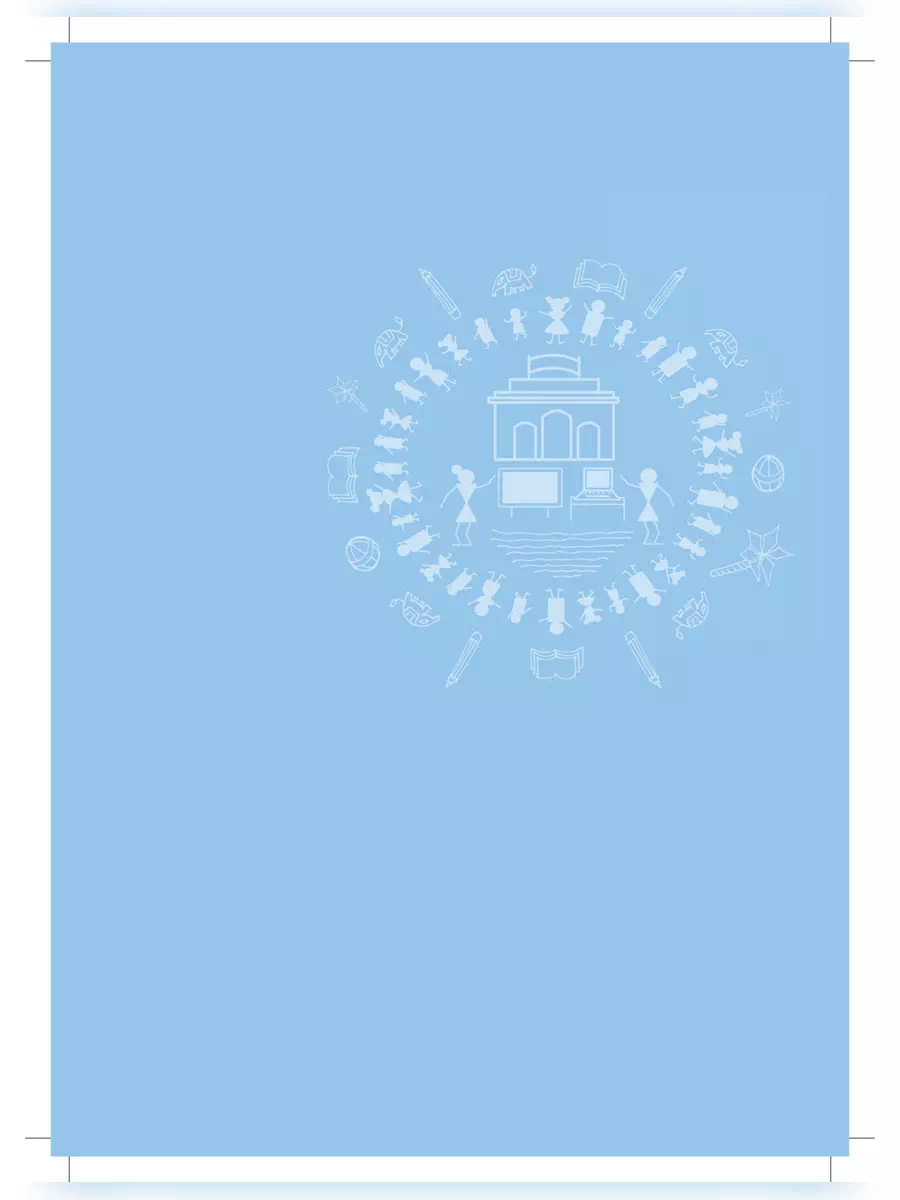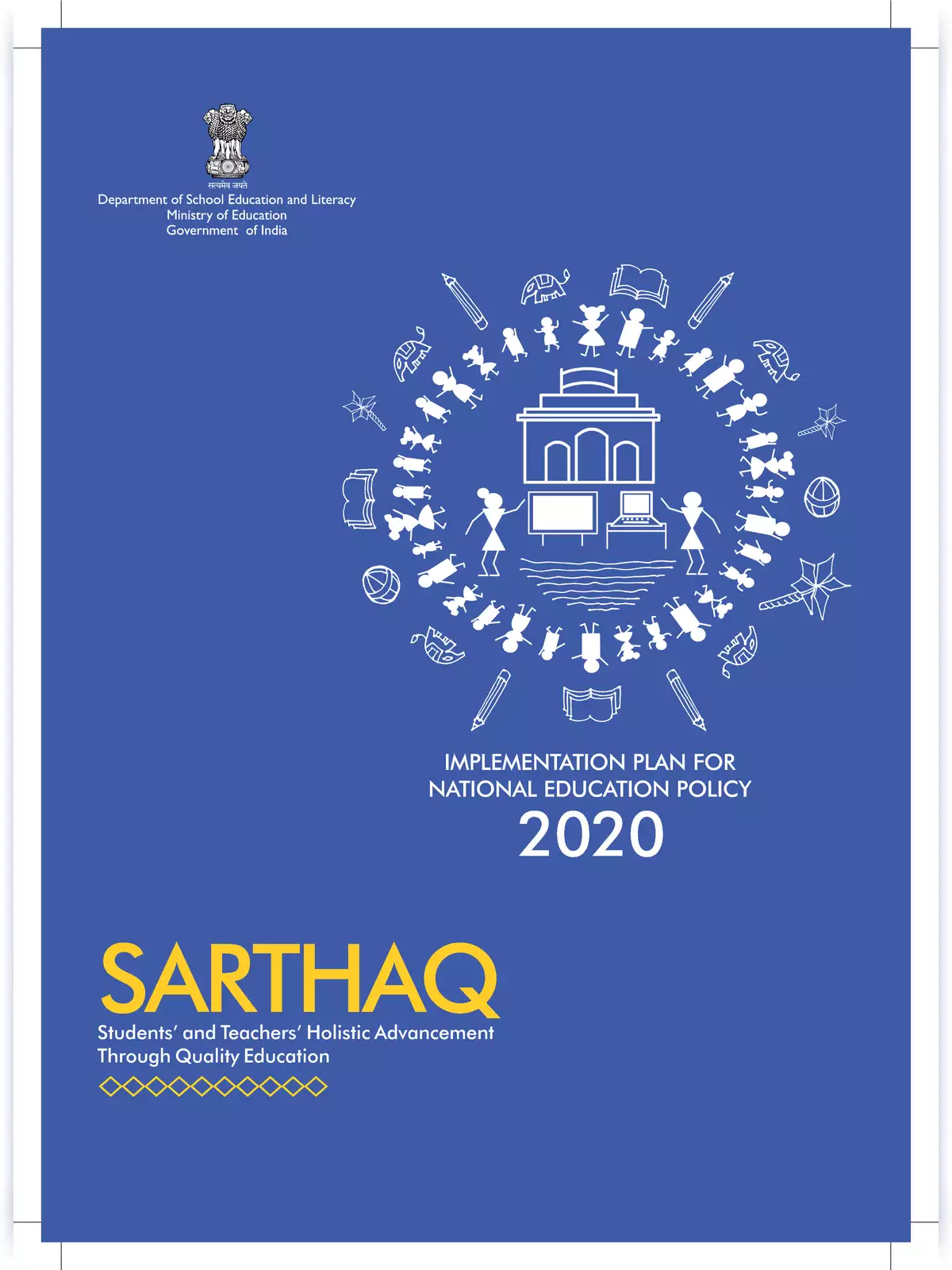SARTHAQ – NEP 2020 Implementation Plan
A two-day Conclave on “School Education in 21st Century” organized by the Ministry of Education as part of Shikshak Parv 2020 concludes today with a commitment to take New Education Policy 2020 forward. Prime Minister Shri Narendra Modi addressed the Conclave under the National Education Policy- 2020 (NEP-2020) at 11 AM today through video conferencing. Union Minister for Education Shri Ramesh Pokhriyal; Union Minister of State for Education, Shri Sanjay Dhotre; Secretary, Department of Higher Education, Shri Amit Khare, Secretary, Department of School Education and Literacy Smt Anita Karwal also participated in the event. After the Prime Minister’s address to the participants, Smt Anita Karwal gave a detailed presentation on the implementation of New Education Policy 2020 relating to School Education.
SARTHAQ – NEP 2020 Implementation Plan Part -2
The first technical session started with a discussion on the subject of ‘Promotion of Indian Languages’ held from 1215 hrs today. The session was coordinated by Dr. Shakeela T. Shamsu, OSD (New Education Policy draft Committee), Department of Higher Education. The two speakers were Dr. Dhir Jhingran, Founder Director of Language & Learning Foundation, and Prof. D.G. Rao, Director (in-charge), CIIL Mysore.
The speakers made the following points:
- The New National Education Policy provides for the promotion of Indian languages through regular use, preparation of pedagogical material, training of teachers, adoption of mother tongue as a medium of instructions, etc. It particularly stresses home languages. NEP also focuses on the promotion of all languages and the mother tongue.
- Implementation of Foundational Literacy and Numeracy requires language comprehension. It must include children’s language.
- 25% of students suffer learning disadvantages because of gap in the home language and the school language. Most sufferers are from Tribal Areas, border areas, children of migrant labourers, and children who study through English medium but have no exposer to English at home or otherwise.
- A mapping of languages is necessary.
- Create multilingual awareness
- Begin including children’s home language in teacher and learning in the oral domain
- Create children’s material in local languages
- Teacher recruitment or deployment of teachers to a particular area may be linked to the local language of that area. Teacher Education Courses should emphasize language skills.
The discussion on the subject ‘Holistic Progress Card’ was held from 1400 hrs today. Dr. Shakeela T. Shamsu chaired the session and Dr. Anju Kauwr Chazot and Dr. Ameeta M. Wattal, Principal, Springdales School, Pusa Road, New Delhi were the speakers for the session.
Dr. Shakeela T. Shamsu welcomed all the participants and mentioned the first principle of the New Education Policy to develop good human beings capable of rational thought and action, possessing compassion and empathy, courage and resilience, scientific temper, and creative imagination, with sound ethical moorings and values. Recognizing, identifying, and fostering the unique capabilities of each student and mapping appropriately is key to holistic development. She told that the Holistic Progress card is basically emanating from the principle combined with the principle of the integrated curriculum, experiential learning pedagogy, and assessment which needs to move away from formative assessment.
Dr.Anju Kauwr Chazot made a presentation on Holistic Report Card and started with idea of Ahimsa in assessment and mentions the need for paradigm changes in the Holistic Report Card. She described interdisciplinary assessment which includes Humanities, Design Technology, Arts & Language and also mentioned inter-disciplinary tasks comprising of Sciences and Physical Education (Sports). She explained that learners should be evaluated by themselves, their peers, parents and initiators (i.e. teachers). To bring the learner’s voice into the assessment, the colonial model of education which is based on control supervision, and subjugation of a population needs to change. She told that children have to learn two things- how to give feedback to another child and also how to receive feedback in a constructive manner. This will prepare students for ethical and value-based learning.
Dr. Ameeta M. Wattal made a presentation on Holistic Report Card. She explained aspects of the holistic report card which include equitable, inclusive, joyful, holistic, and diverse knowledge. She told me that the National Education Policy is not about reforming but about transforming. She mentioned attributes of a progress card and the 4D framework for the whole child, which includes knowledge, skills, and character. She also described experiential learning and the core concepts which include literacy, numeracy, ICT, capability, critical & creative thinking, ethical understanding, and indigenous understanding. At last, she explained indicators of the Holistic Report Card which contains research, thinking, initiator, exploration, experimenting, curiosity, adaptability, and balance.
The discussion on the subject ‘Early Childhood Care and Education’ was held at 1500 hrs today. The session was moderated by Prof. M. K. Sridhar, Member of the Drafting Committee of NEP. During the session two speakers –Dr. Venita Kaul, Ambedkar University, and Prof. Suniti Sanwal, NCERT spoke about the subject based on their research and profound experiences.
Speakers highlighted that the impact of early learning, socialization and school readiness experiences in preschool settings on educational and behavioral outcomes along the primary stages was explained. Based on research experiences, the emphasis was given on developing all dimensions of school readiness among children and a strong linkage was highlighted between ECCE and foundational years of education in the life of an individual. In a comprehensive manner, presenters talked about the role of activity, joyful, playful and discovery-based pedagogy to be used in the set-up of pre-school education. Quoting the New Education Policy 2020, the importance of strong communication between all stakeholders was also elaborated.
The stages of all-round development of children in the early years and set of skills for development stages were also spoken about. NCERT informed that Pre-school Education Guidelines and Curriculum have been developed by them. To provide an effective and quality based ECCE to children importance of strong convergence between all stakeholders was the emphasis.
The discussion on the subject ‘No Hard Separation’ was held at 1600 hrs today. The Session was coordinated by Shri Manoj Ahuja, Chairperson, CBSE. The two speakers were Prof Manjul Bhargava, Member, Draft NEP Committee, and Dr. Chand Kiran Saluja, Retd. Prof. CIE, Delhi University.
The speakers made the following points:
- NEP provides for the multidisciplinary, holistic development of children without any barriers and boundaries of streams, subjects, choices, etc. There is no hard separation in the subject study, curricular, co-curricular, extra-curricular, vocational and academic streams, etc.
- The holistic development or education prepares us for facing the different challenges throughout life.
- Creativity and technical knowhow needed together to excel in life.
- Multidisciplinary and holistic education is the need of the hour.
- Flexibility is the fundamental principle of the NEP 2020 and every chapter of the NEP attempts to eliminate or remove the separation.
- Integration and coordination are the basis of holistic development.
- Ensures the unity and integrity of all knowledge and eliminates harmful hierarchies among different areas of learning.
- Integrates pre-schools (Aganwadies) to Higher Education.
- Promotes creativity and critical thinking, multilingualism, and power of language, life skills, etc.
- NEP is based on full equity and inclusion. It encourages innovation and out of the box ideas through autonomy, good governance, and empowerment.
- NEP empowers students through flexibility in the choice of subjects. It advocates the identification of hidden talent in every child.
Download the NEP 2020 Implementation Process in PDF format using the link given below.
Also, Read
New National Education Policy (NEP) 2020–Hindi
New National Education Policy (NEP) 2020–English

